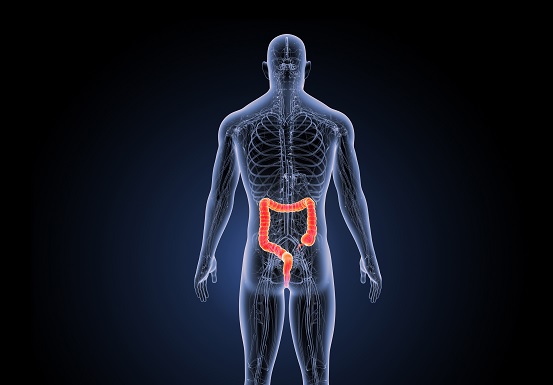Understanding IBS

There is a lot of confusion surrounding Irritable Bowel Syndrome (IBS). Dr Reuben Wong, Gastroenterologist at gutCARE, corrects some common misconceptions and explains what can be done to relieve its symptoms.
WHAT IBS IS – AND WHAT IT IS NOT
IBS is often confused with constipation, for good reason. While constipation is a condition characterised by infrequent or hard stools, IBS patients experience abdominal pain or discomfort associated with a change in bowel movements in terms of frequency or stool forms. Hence the IBS subtype known as constipation predominant IBS, or IBS-C, can present in a very similar fashion to chronic constipation.
“While constipation and IBS are considered separate and distinct conditions, both groups of patients are constipated and have poor quality of life. Many of the drugs used to treat both conditions are more or less the same, so it is a bit of an artificial divide,” shared Dr Wong.
Dr Wong also emphasised that there is no link between IBS and stomach and colon cancer, despite patients’ understandable ‘worst case scenario’ fears based on the severity of their symptoms.
By definition, IBS is a chronic functional disorder, meaning that patients need to have had the symptoms for the past six months, with a certain degree of regularity. As there is no definitive test for IBS, the diagnosis is made when patients fulfil the Rome IV criteria (a recognised set of diagnostic criteria for IBS). It is subdivided into different subtypes depending on the predominant stool subtype.
ANYONE CAN SUFFER FROM IBS
While it was previously thought that young, stressed-out females were at a higher risk of suffering from IBS than other age groups and genders, studies have shown that IBS affects men and women across the age spectrum. It has been estimated that 10 to 15 percent of Singaporeans are suffering from IBS.
The causes of IBS are many, and often difficult to pinpoint. They include genetics, a previous gut infection, diet and nerve hypersensitivity. Hence, Dr Wong stresses the importance of correct diagnosis.
IMPORTANCE OF CORRECT DIAGNOSIS
Given the multi-factorial nature of IBS, diagnosis is often difficult and inaccurate. At his clinic, Dr Wong mainly sees patients who have first consulted a general practitioner. Others may have already consulted a specialist, and come to seek a second opinion.
Some IBS patients resist accepting a diagnosis. Due to the severity of their symptoms, they refuse to accept the explanation of IBS and continue to search for evidence of a more sinister condition such as appendicitis or cancer.
“The failure to make the diagnosis, or the failure to accept the diagnosis, results in patients going all over the shop, being pushed from scan to scope again and again,” shared Dr Wong.
Incorrect diagnoses and unaccepted diagnoses, which result in the patient undergoing unnecessary surgeries and investigative procedures, carry a high financial cost and also an emotional and psychological one.
TREATMENT ACCORDING TO CAUSE
When diagnosed correctly, outcomes for IBS patients are very good. Symptoms can be lessened and even eliminated, and quality of life can be vastly improved.
For patients with mild IBS, simple dietary avoidance may be all that is required. Common food triggers include caffeine, chilli, beans and milk.
In particular, cow, sheep and goat dairy products contain lactose, which is a FODMAP. Besides lactose, FODMAPs are a group of hard-to-digest sugars that are found in garlic, onions, cauliflower, bananas, barley and other foods that are known to cause gas. These foods can be the culprits in IBS, and their intolerance can easily be ascertained by using a breath test. Probiotics may help to restore the balance of good bacteria in some IBS patients, and thus help relieve their symptoms.
For patients with moderate IBS, medication may be required, together with lifestyle modification measures that include dietary avoidance.
For those who suffer from severe IBS, psychotropic drugs that desensitise the numerous nerve endings in the gut may be administered. This form of medical intervention is called neuro-modulation.
If left untreated, IBS symptoms do not go away. However, there are no adverse long-term side-effects, just the daily misery of coping with abdominal pain, constipation, bloating, gas, a restrictive diet and the social embarrassment that goes with it. That’s not to forget the knock-on effect that IBS has on those close to the patient.
Dr Wong shared that studies done on the ‘partner burden’ of IBS showed that spouses can potentially suffer as much or more than the spouses of patients with severe conditions such as cancer and dementia.
AWARENESS IS BUILDING
Dr Wong believes that awareness of IBS is building. However, there is still much room for improvement. Physicians need to be aware of the diagnostic criteria and consider the diagnosis in their patients. Members of the public need to be more tuned in to, and more accepting of, the possibility that they may be suffering from IBS rather than fearing the worst or blaming it on ‘gastric’.
Given the treatability of IBS, a diagnosis is something to be welcomed. As with all things in life, knowing the problem is the first step towards finding a solution.
Article contributed by Dr Reuben Wong, an accredited doctor of Mount Alvernia Hospital.
This article is taken from our My Alvernia Magazine Issue #35. Click here to read the issue on our website or on Magzter.



